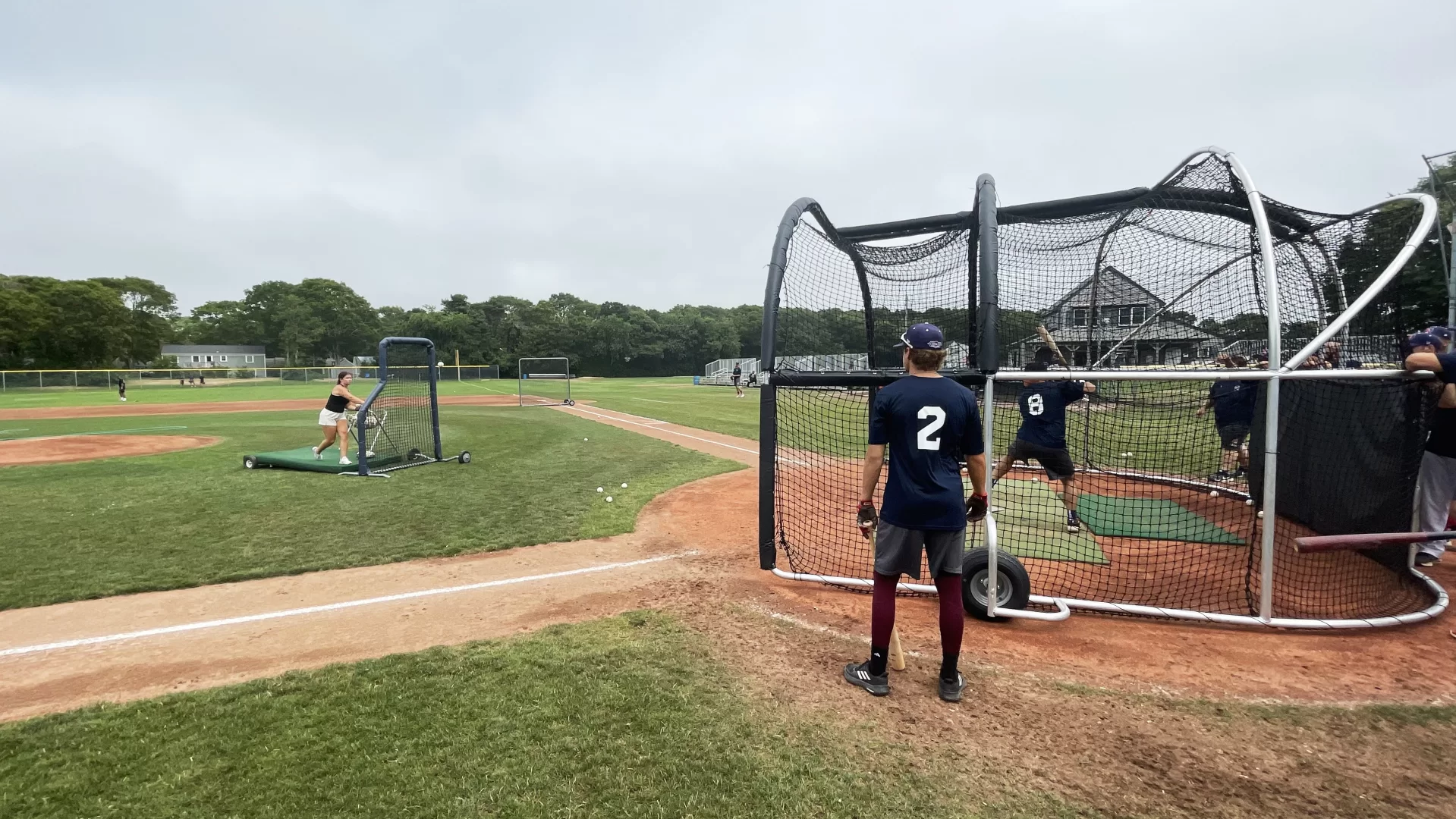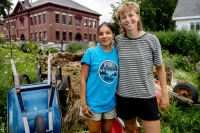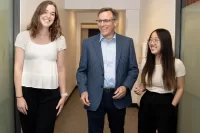
Over the summer, we checked in, through photography and interviews, with nine students whose summer jobs had Bates funding, whether through a campus office like Admission, through academics, or through the college’s nationally known Center for Purposeful Work, which provided more than 100 funded internships.
From here on the Bates campus to far-flung Florida, these nine spent their summer doing everything from raking grain in a malthouse, to helping scout the next great baseball player, to assisting a law firm with an international bank fraud case.
They were eager to tell us about what they saw (and smelled), what they did, and what they learned about themselves and their emerging sense of purpose.
‘A little bit indescribable’
The smell? “It’s as if you took a bakery and soaked it in water for a long time,” says Eli Kushner ’24, describing the odor of the germination room at the Blue Ox Malthouse in Lisbon Falls. “I’m not doing a very good job at describing the smell. I guess it’s a little bit indescribable.”
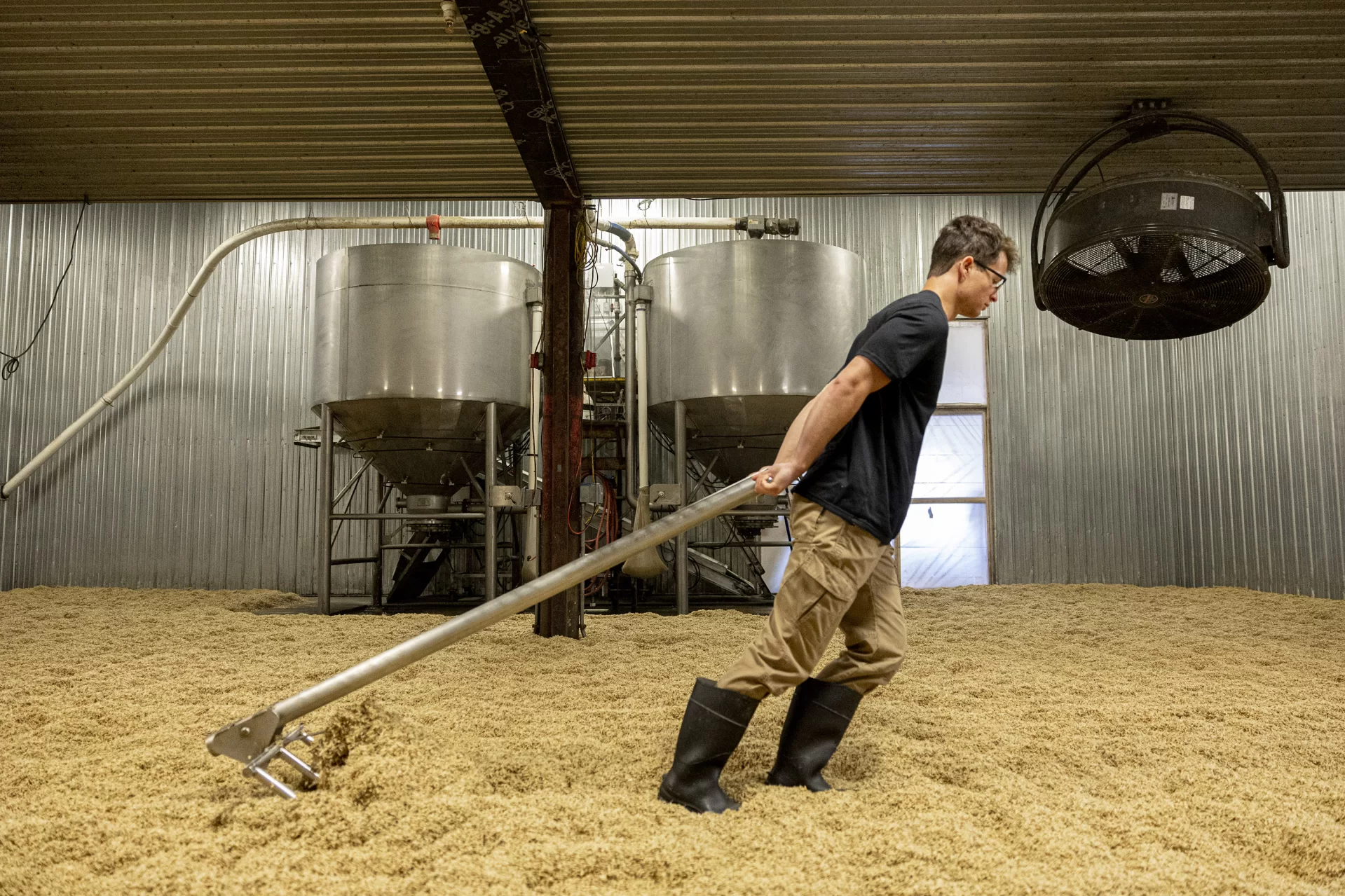
Over the summer, Kushner used his Bates-funded Purposeful Work internship at Blue Ox to learn a key step in the beer-brewing process: how malts are created.
In beer parlance, malt is a grain that has been steeped, germinated (but not too germinated), kiln-dried, and then delivered to breweries. Blue Ox uses grains harvested on Northern Maine farms to create the flavorful malts that are used by some of the area’s premier craft breweries, including Allagash and Maine Beer Co., among others.
A double major in biochemistry and music from Philadelphia, Kushner put his body and brain to work at Blue Ox. He spent hours raking grains in a room carefully controlled for heat and humidity. In the malthouse lab, Kushner helped with various quality-control processes, such as testing moisture content.
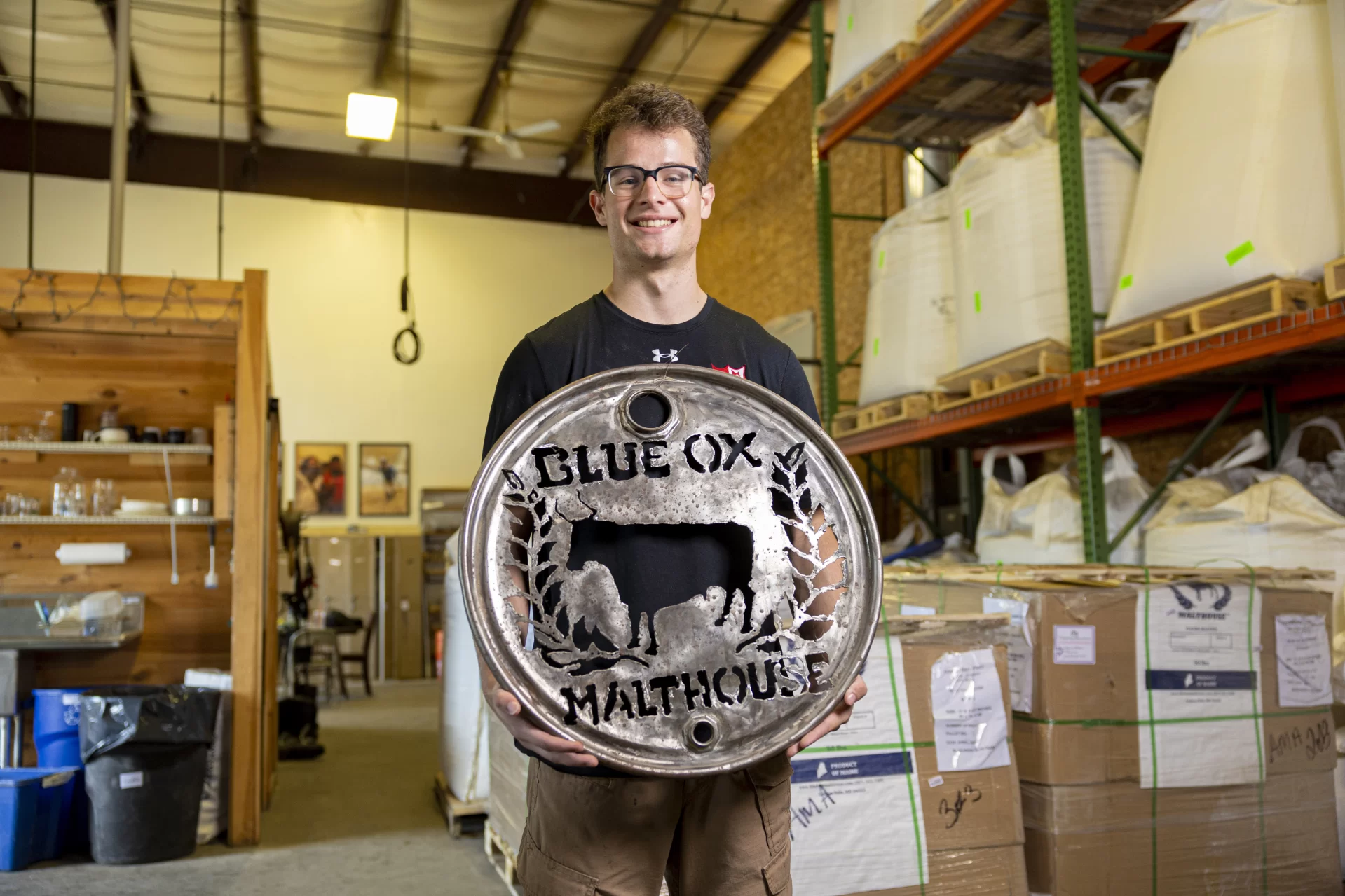
“And we test friability which is basically how the grain crushes,” Kushner explains. Along the way, he’s been learning how to organize and present data visually, through charts, graphs, and the like. Kushner has been given guidance and training but trusted to do work correctly. “What I do is sort of up to me, which is cool.”
‘Being on campus makes a difference’
Giving Admission tours is more than just a walk on the Quad. There’s also helping to staff information sessions, and contributing to the Instagram account to welcome the Class of 2026.
As an Admission summer intern, Sam Simmons ’24 quickly learned how to weave together personal anecdotes and institutional facts, all while walking backwards.
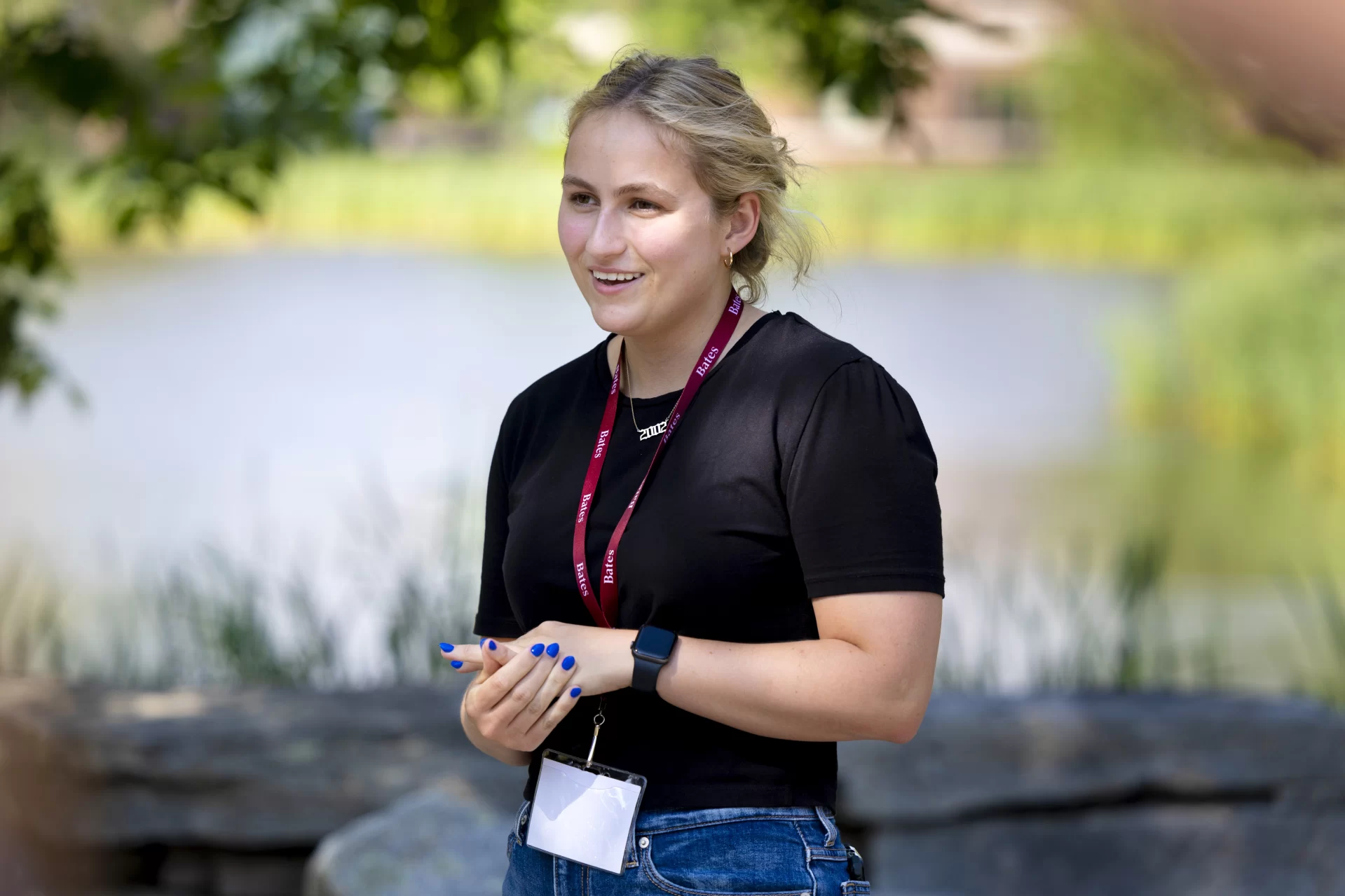
Since the early 2000s, Bates has, whenever possible, offered separate tours for parents and prospective students. “It’s a great opportunity for the students to ask questions that they wouldn’t want to ask around their parents, and vice versa,” says Simmons.
While all tours visit campus landmarks, such as Ladd Library, Pettengill Hall, and Gomes Chapel, she learned to tailor her walks and talks to the interests of the visitors, like lingering a little longer in Bonney if the group seems to have a STEM interest.
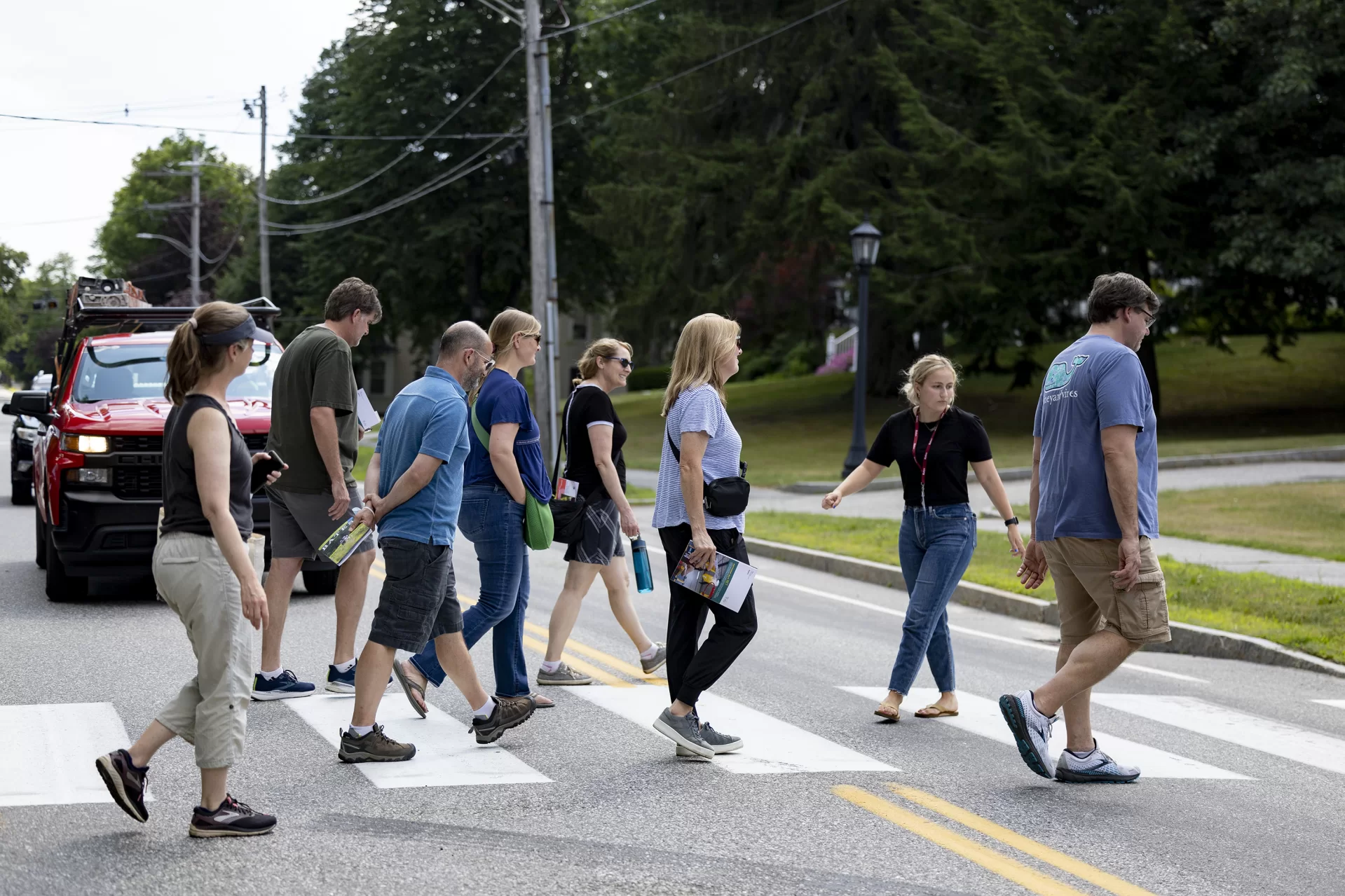
Bates has developed a robust online experience for anyone for whom a visit is not in the cards. But “simply being on campus makes a difference,” Simmons says.
If students can picture themselves sitting in Commons as she did on her high school visit, or walking to the library, “I think it’s the best way to figure out if they want to go to school here, if they can actually see themselves as a member of the Bates community.”
‘Or something!‘
Less than two hours from campus, nestled in the heart of Unity, Maine, Eli Boesch-Dining ’23 learned how to really compare apples and oranges — well, maybe not oranges, but certainly apples, pears, and the ins and outs of keeping an orchard.
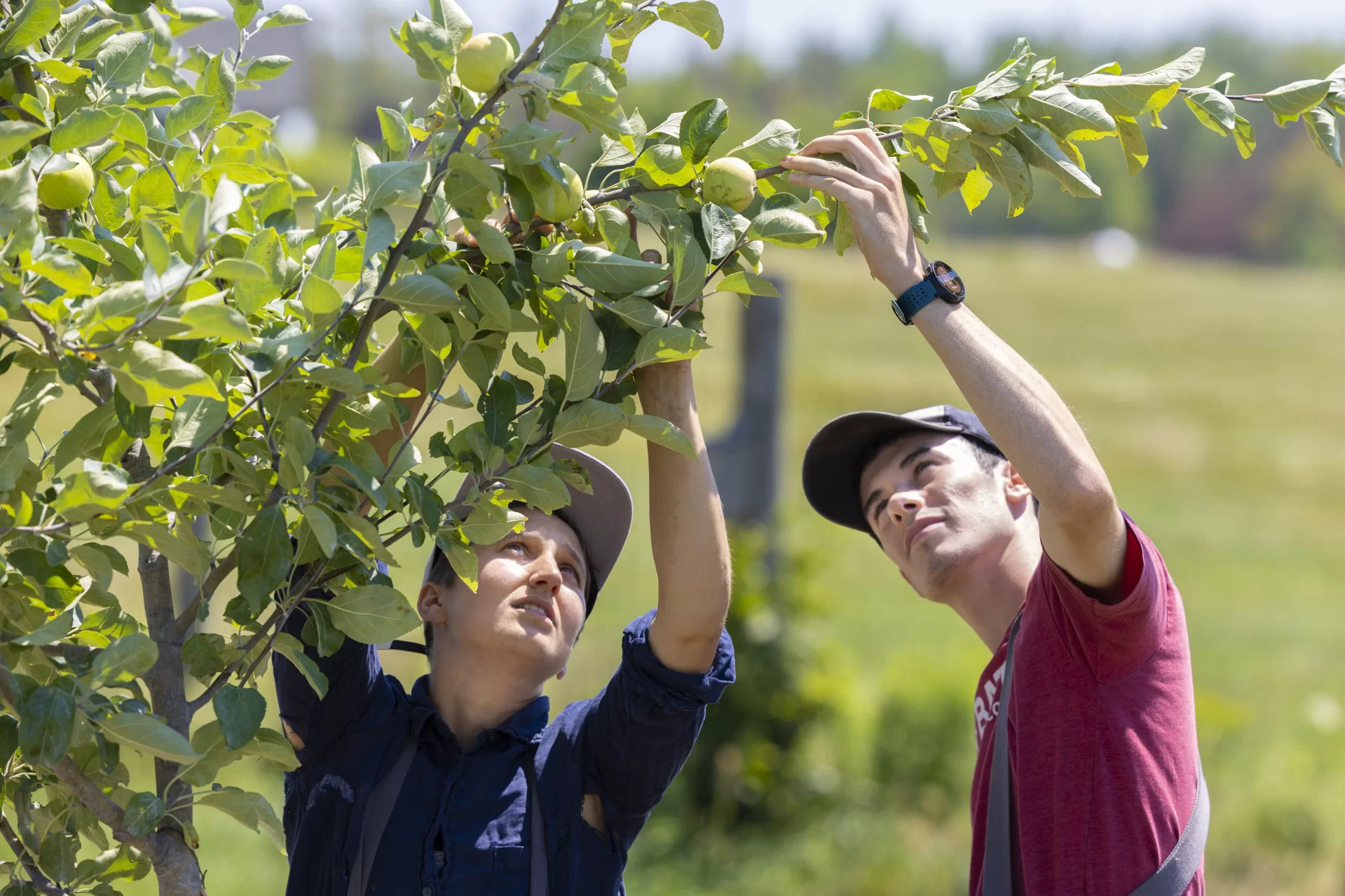
An environmental studies major from Concord, N.H., Boesch-Dining was a Purposeful Work intern in the Heritage Orchard, maintained by the state’s preeminent organic farming group, the Maine Organic Farmers and Gardeners Association.
The orchard contains more than 300 varieties of apple and pear trees that originate from all 16 Maine counties. Dating as far back as 1630, most of them are on the verge of extinction.
Boesch-Dining has done hands-on agricultural work before, including at a hydroponics facility and a plant nursery in New Hampshire, but this was his first time working for a nonprofit organization, and he liked their focus on conservation and environmental sustainability.
From revamping the orchard’s website, to thinning apples in the orchard, to learning about pest mitigation, the summer was one big learning curve, but he’s thankful for all the skills he gained, and the perspectives of the people he worked with.
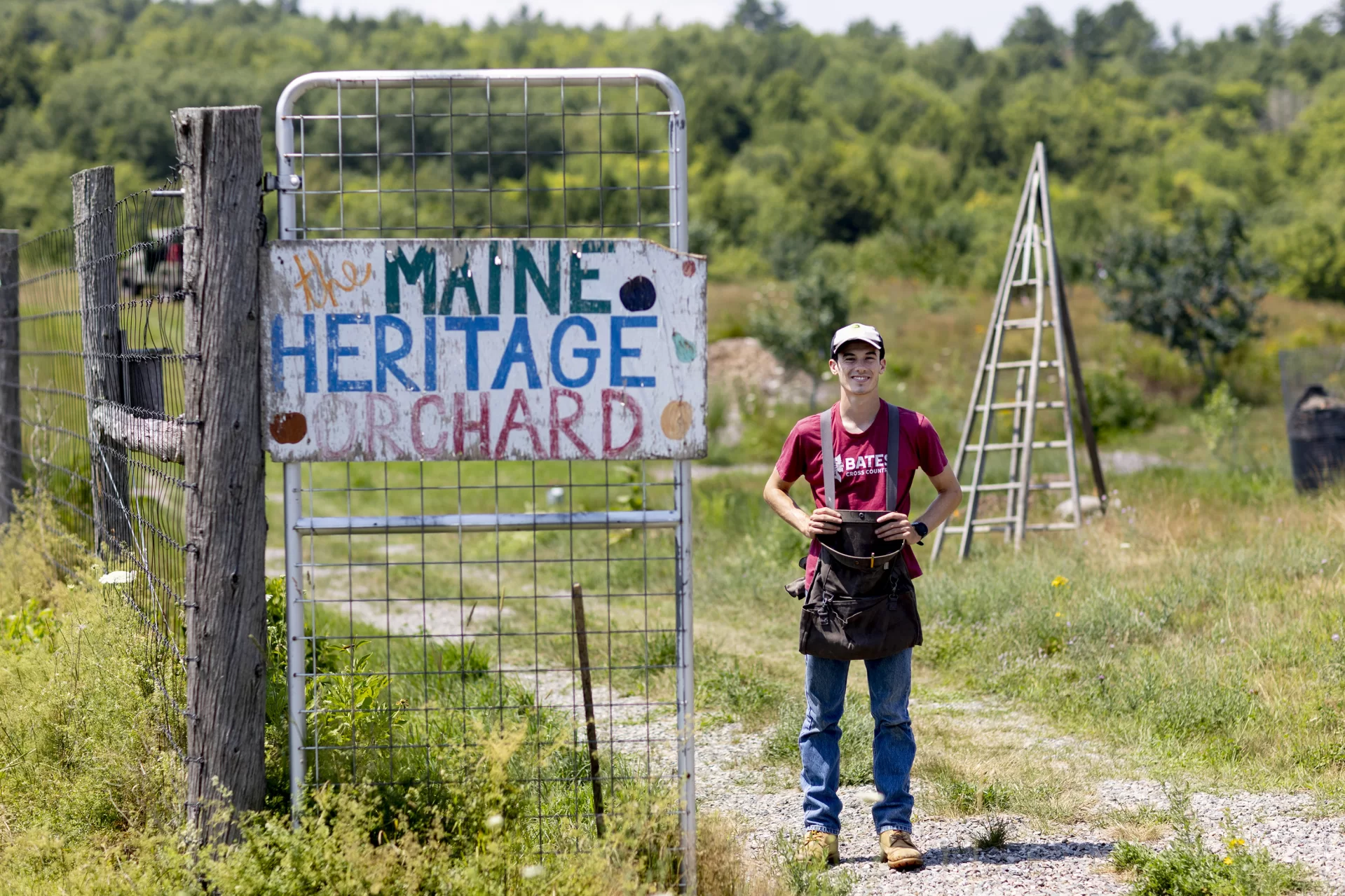
Back on campus, he’s particularly interested in his “Soils” course for how it might connect to his interest in composting. And he wants to learn more about programming through the curriculum, too. He’s got a lot going on, wondering with a laugh if he’s having a “mini quarter-life crisis,”
He’s looking ahead to his thesis, which “is probably going to revolve around different biological inputs in Maine, like the timber industry and seafood, and how those can come together to be composted or anaerobically digested — or something!”
‘In essence, quality over quantity’
Julia Bisson ’23 of North Yarmouth, Maine, headed south for a Purposeful Work internship with a law firm with a claim to fame: one its founders was a lead prosecutor who helped convict the world’s most-wanted drug kingpin, Joaquin Guzmán, the notorious “El Chapo.”
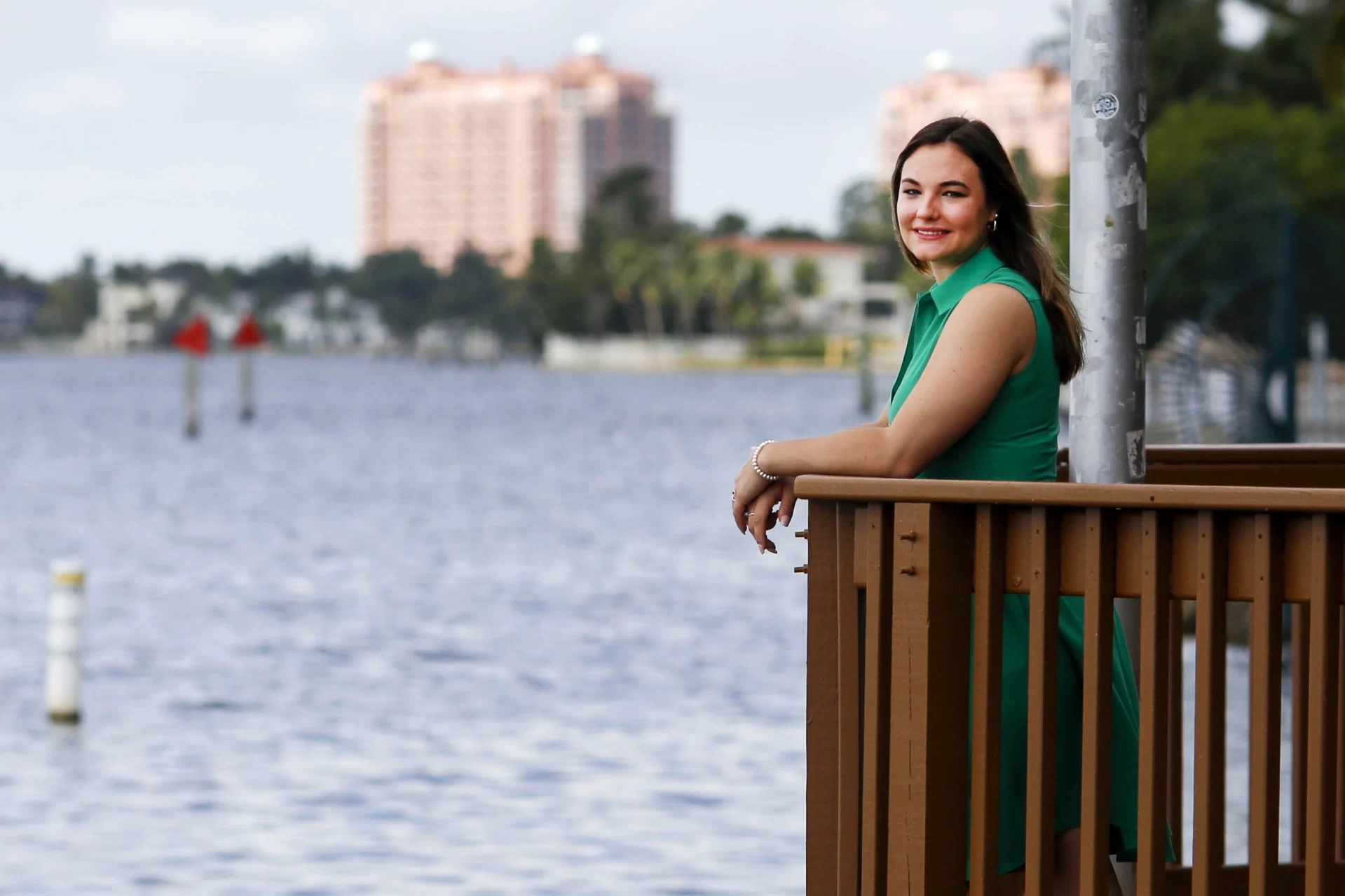
These days, Adam Fels and his firm focus on the defense side of the law, including cases related to securities, banking fraud, national security, and money laundering, to name a few.
At the firm, Bisson helped do research on a major case involving alleged bank fraud. “Huge and complex,” she says. Not surprising, the entire firm is working on it. There was great urgency, but also “a lot of teamwork and collaborating with the other partners, attorneys, and paralegals. I think that made it less scary for me,” she says with a chuckle.
“I learned the importance of detail and thoroughness. I realized that sometimes it is better to slow down and do more thorough work rather than do faster work at the expense of accuracy and detail. In essence, quality over quantity.”
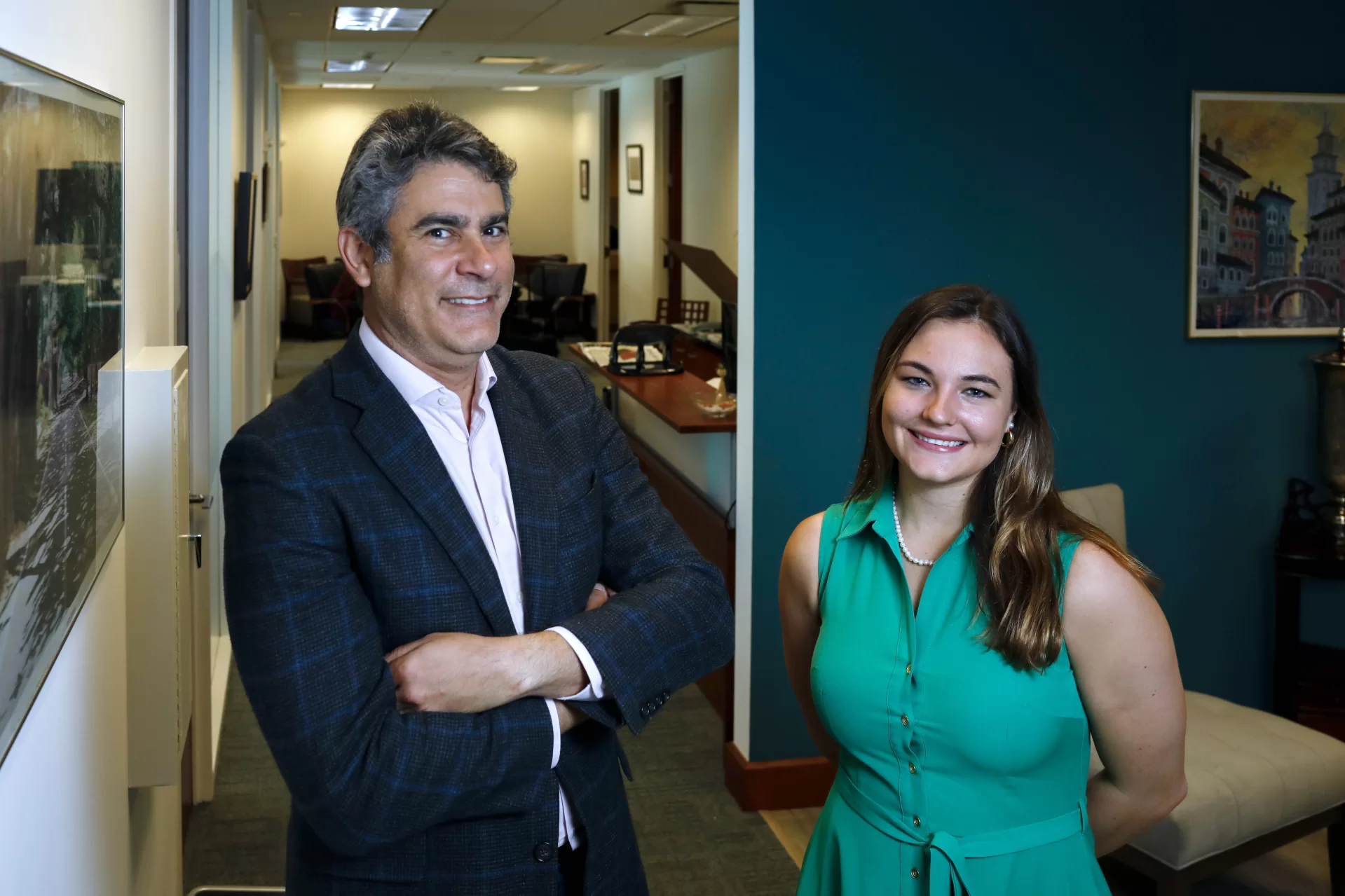
Along the way, she talked with her colleagues and gleaned valuable advice for her future career in the legal field: take a year or two off after undergrad to experience other things, and get a law clerkship after graduating law school.
“A lot of people do that and they say it gives them a really good perspective once you are a practicing lawyer and attorney,” she says. “Because you got to see things from the perspective of a judge.”
‘Communicate science effectively’
For Rebecca Anderson ’24, panoramic coastal views were a nice bonus as a research fellow at MDI Biological Laboratory, located in Bar Harbor on Maine’s Mount Desert Island .
Funded by an INBRE grant, Anderson, a double major in biochemistry and math from Boone, N.C., studied regeneration and regenerative medicine.

She worked with Joel Graber, Ph.D., a senior staff scientist and director of computational biology and bioinformatics core at MDIBL. With fellow scientists worldwide, Graber is researching the axolotl, a Mexican salamander that has the astonishing ability to regrow limbs and major organs.
Understanding the salamander’s ability to regenerate can help researchers “improve human wound healing and tissue scarring,” says Anderson.
She focused on developing a search tool that allows researchers to identify orthologs, genes that are derived from the same gene in a common ancestor. Specifically, researchers hope to find axolotl genes within the human genome and other commonly studied organisms.
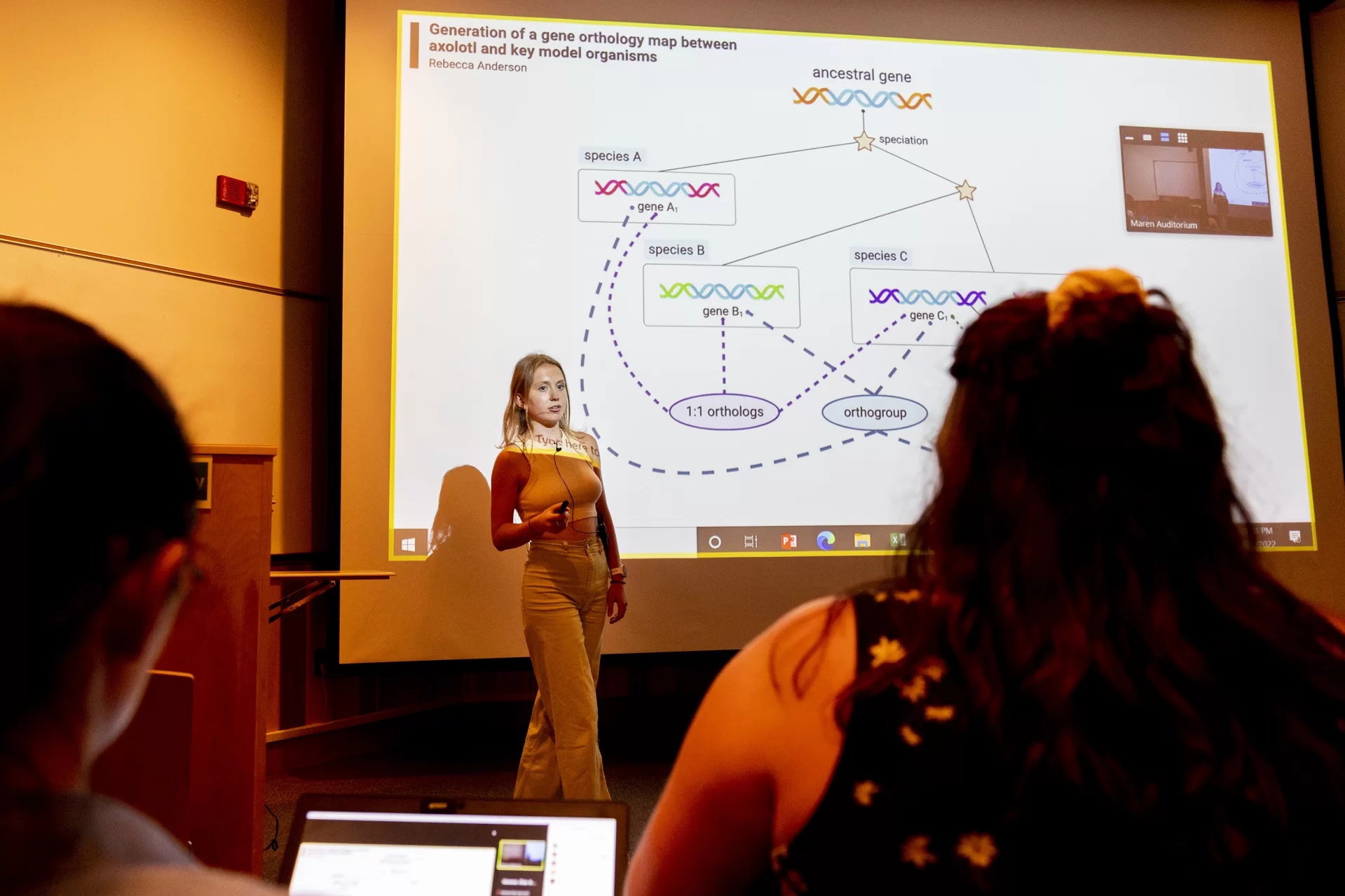
Anderson got to talk with faculty and graduate students about their journeys and, at the end of her fellowship, gave a community-wide presentation. That helped her to “communicate science effectively to a lot of different audiences.”
“It’s been really cool to see all these different areas of science that I can be a part of, and think about what I want to do in the future.”
‘Feel just more humble’
Miguel Angel Pacheco ’24 of Caracas, Venezuela, reports that he worked with a bunch of clowns during his Bates-funded Purposeful Work internship. But it’s all good.
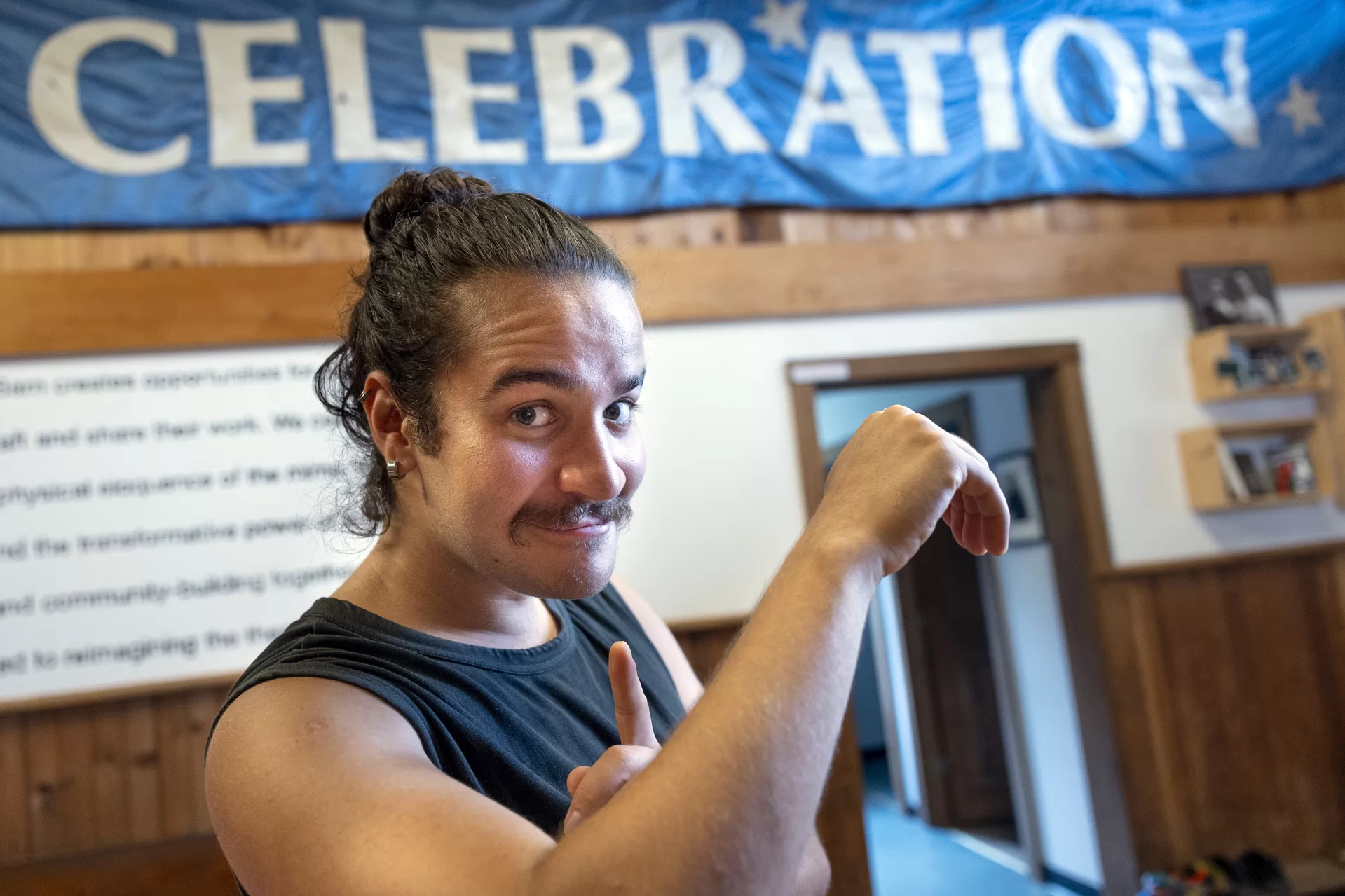
As a creative producing fellow at the famed Celebration Barn Theater in nearby South Paris, he worked on the Barn’s 50th anniversary celebration, a show that featuring renowned clowns Bill Irwin and Avner the Eccentric, and a one-woman show, Tony Montanaro — A Love Story, an homage to the Barn’s founder, considered one of the great mimes of the 20th century.
Pacheco designed the lighting and ran sound and lights for the piece, which was created and performed by Karen Montanaro.
Pacheco was an experienced performer when he arrived at Bates, within theater, dance, installation, and circus. “I’m primarily a performer — that is what most of my training has been over the years,” says Pacheco, who could be found on any given weekend as a sheriff-on-stilts performer at various Maine arts events.
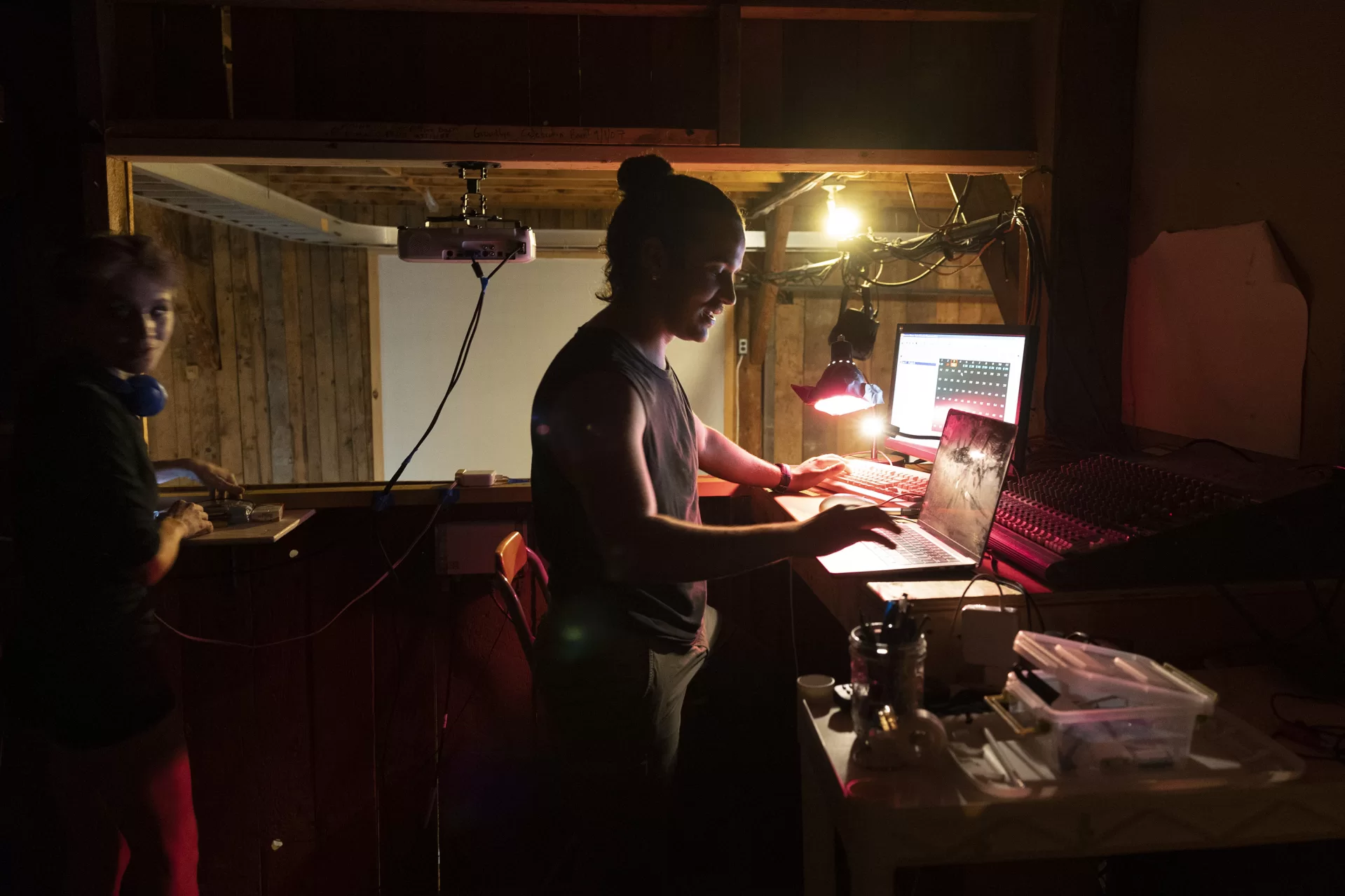
“It’s just recently that I’ve shifted also to theater production,” as a carpenter, house manager, and crew member. “Being able to uplift someone else’s work and collaborate with them in a way that it’s not only my voice, but I’m trying to uplift a different voice.”
The experience “makes me feel just more humble about the space and the work that I’m doing.”
‘Your project and its driving question’
A Purposeful Work intern at Brigham and Women’s Hospital in Boston, Casey Winter ’23 of Malvern, Pa., gained an appreciation for two habits of mind that are invaluable to a STEM researcher: troubleshooting and collaboration.
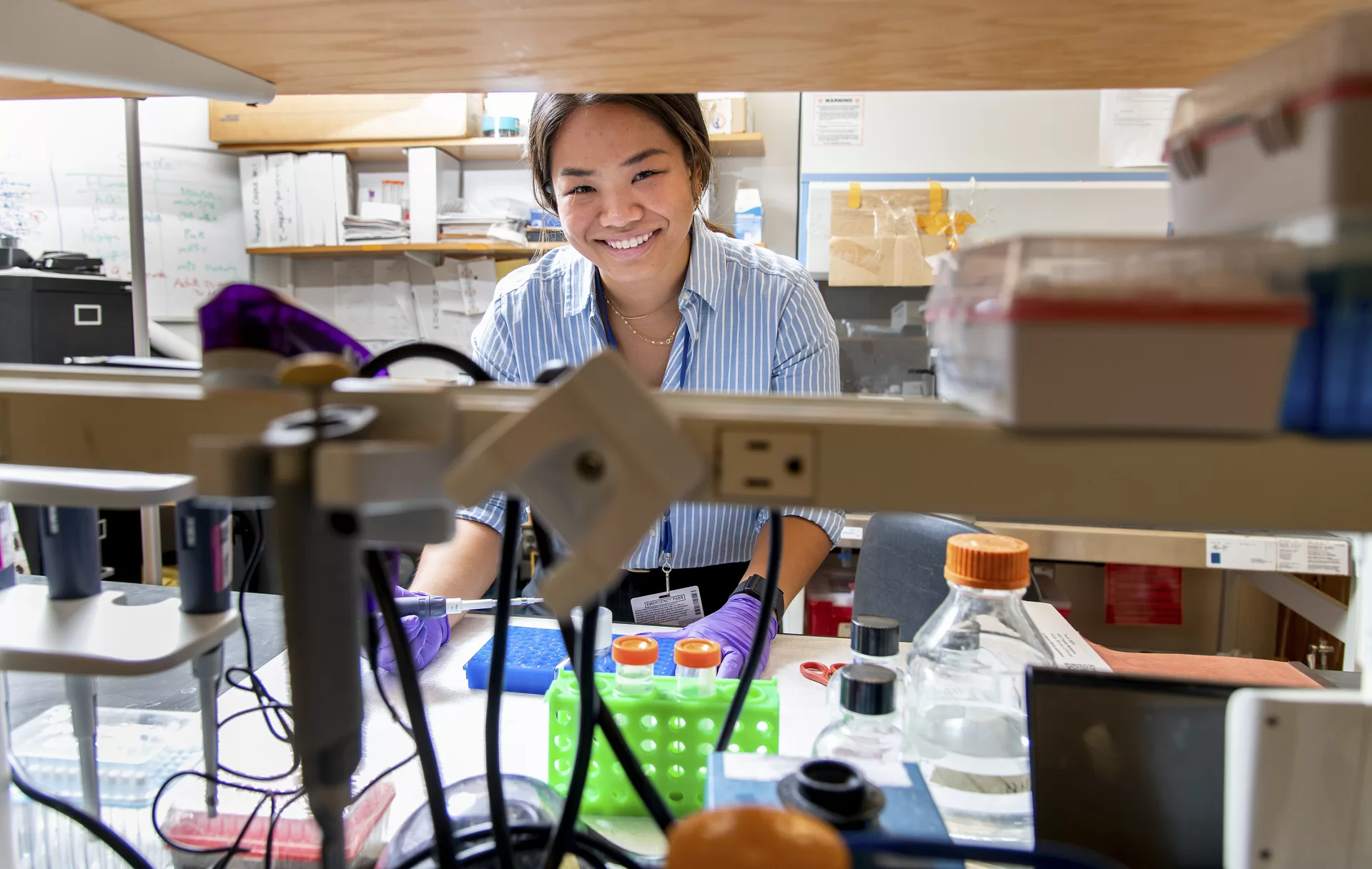
Troubleshooting, Winter said, “enables you to develop a deeper understanding of your project and its driving question, which is essential in the scientific process and the progression of research.” A spirit of collaboration, she added, is essential to creating a “strong working relationship with your colleagues and fellow researchers.”
Winter is pursuing pre-health studies at Bates with a major in biochemistry and a general education concentration in public health. She worked in the medical research lab of Raymond Manohar Anchan, M.D., Ph.D., an assistant professor of obstetrics, gynecology, and reproductive biology at Harvard Medical School.
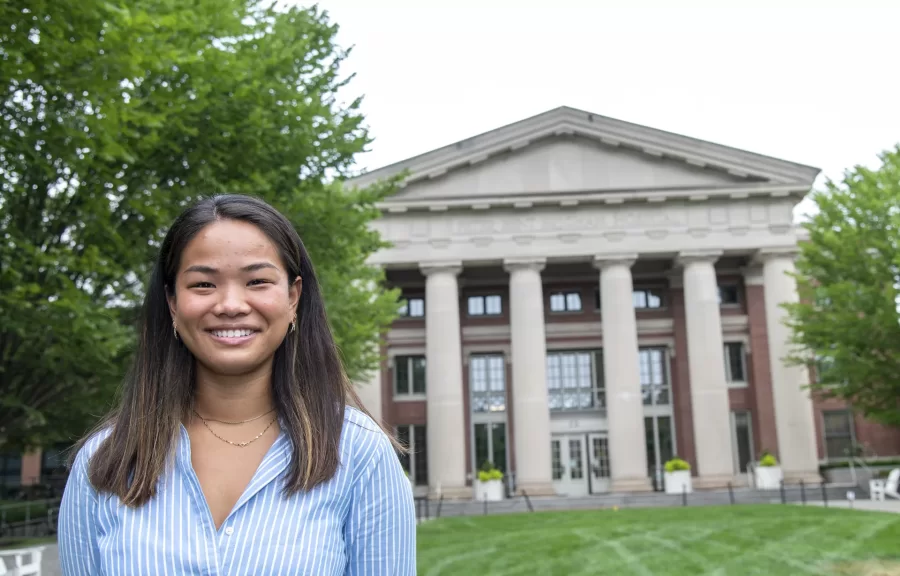
The lab’s research includes finding better treatments for gynecological diseases, including endometriosis, a painful but difficult to diagnose condition in which a type of tissue that typically lines the uterus grows outside of the uterus.
It’s difficult to diagnose because of its “variable and broad symptoms,” she explained. “Invasive surgery is the only way to confirm endometriosis.” The lab seeks to develop better treatment plans for patient pain and, ultimately, improved methods for diagnosis.
‘It has been spectacular’
Kendall Williams ’23 of Phenix City, Ala., spent his summer in Texas, in a Purposeful Work internship with the multinational consulting firm Accenture in Houston. He worked in the firm’s Technology Development Program, aligned in Security Practice.

“I love the work that Accenture does,” Williams said, and after working remotely for the company’s Detroit office during the summer 2021, he knew he wanted to return as an analyst for them. “But I also wanted to check out what it was like living and working in a new city,” he says.
So he chose to move to Houston for the summer. “It has been spectacular both in my work and personal life,” he said. “I’ve been able to learn new and transferable skills and have really stepped out of my comfort zone being in a new city.”

‘This is what I want my future to look like’
Each summer, Major League Baseball scouts descend on eastern Massachusetts to evaluate top college baseball players in the Cape Cod League, widely considered the best amateur league in the land.
And when they attend a Yarmouth–Dennis Red Sox game, they seek out Amanda Taylor ’23, the team’s Major League Baseball scouting liaison.
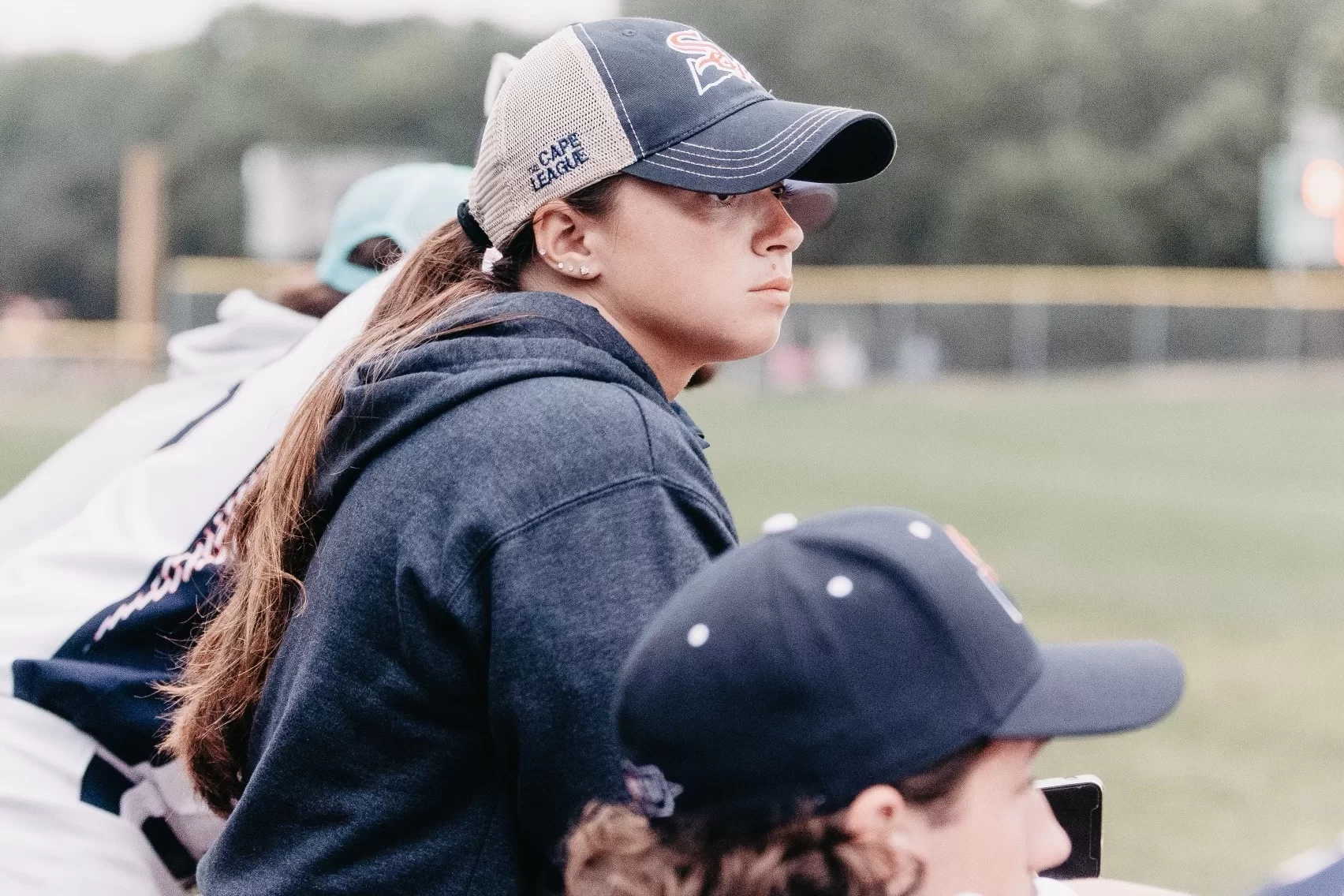
The scouts want answers that will help their clubs make multi-million dollar decisions in the amateur draft every year. As a scouting liaison, Taylor makes sure the scouts get the information they need to correctly evaluate the talent they see on the field.
She works closely with the players, spending the majority of each game in the Y-D Red Sox dugout and sometimes throwing batting practice. A psychology major who understands the game (she’s a Bates softball player), Taylor is able to provide insights to the scouts beyond the metrics.
Befitting the goal of Purposeful Work internship, the experience helped her discover more about herself.
“Taking into account what I study at Bates, and what I like to do, and how I want to live my life, I started to really look into it and became really invested in it,” Taylor said. “I came to realize this is what I want my future to look like.”
